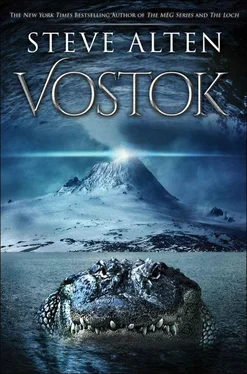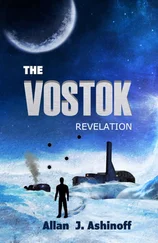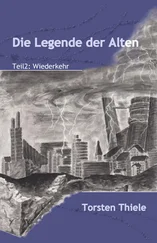“Hell, no.” Reaching above his head, Ben unlocked the hatch and popped open the acrylic dome.
A blast of subzero air forced me to quickly zip my jacket and mask my face. Ming passed her backpack to Ben, who then helped her out of her cockpit.
Adjusting the straps on my climbing boots, I exited the sub, purposely spiking Ben’s leather seat with my steel cleats just for good measure before securing the hatch.
“I have seen so many extraordinary things, nothing seems extraordinary anymore”
— Lewis Carroll
I stood between Ben and Ming in our frigid surroundings, the three of us sharing the same sense of awe the Apollo 11 astronauts must have felt when they first set foot on the Moon, the same emotional rush a mountain climber experiences upon reaching the summit at Everest. For several minutes, we simply allowed our senses to partake of our Miocene world as we stretched away thirty-plus hours of cramped muscles. We inhaled Vostok’s air, smelling its high oxygen content, registering a trace of dizziness in its purity. We listened to the ice sheet as it crackled and groaned and rumbled high overhead, its pitted foundation trickling droplets of water, each liquid discharge congealing during its twenty-second descent into golfball-sized meteors of slush. These semi-frozen projectiles delivered a painful wallop when they found their mark and were impossible to dodge, forcing us to cover our heads with our backpacks.
The ski goggles Colonel Vacendak had supplied us with were equipped with night-vision lenses, which painted the environment olive-green, adding a surreal alien element to our surroundings. Somewhere to the north a snow-covered mountain towered like a smaller version of the Matterhorn, its base enshrouded by fog.
The snow beneath our feet had been crushed by the elephant seals. We could smell the oily musk secreted by their blubber as it mixed with the saline bay waters lapping behind us along the shoreline. Yet, while the atmospheric pressure was tolerable, the electromagnetic elements in play were far from static. They caused our flesh to tingle and our hair to rustle beneath our hoods.
Removing the multi-purpose instrument from my jacket pocket, I attempted to use the global positioning system to get a fix on our first target. When the compass scrambled, I switched to the magnetometer, which registered 175,000 nanoteslas — the equivalent metallurgy of the New Orleans Superdome — about what you’d expect from an asteroid impact site.
Ben handed each of us a climbing axe and flashlight, both items trailing a cord that attached to our jackets’ belts. “We’d better rope up. Zach, you take the lead. Then Ming. I’ll bring up the rear. Use the handle of your axe to test the ice ahead of you. You hear something crack, back off fast.”
Ming and I removed the ropes from our backpacks. I used mine to link my belt with Ming’s. She attached her line to Ben, so that between us we shared 160 feet of nylon cord.
I set out from the shoreline, the metal spikes in my climbing boots slipping on the flat stones hidden beneath the packed snow. The herd of elephant seals grew restless as we approached, the adult females snorting and growling but yielding enough ground for us to slip past their beachhead and around a few boulders to where a thirty-degree slope led up to the base of the mountain.
Virgin snow greeted us as at an elevation of forty-five feet, our boots sinking in up to our calves… then our knees. Each step became its own adventure, the physical exertion forcing us to transfer the packs to our backs in order to use our arms for balance.
Extreme cold breaks down the body’s reserves. My breathing became labored. My muscles trembled. My pulse became a heavy, rapid thud. I could feel frostbite exploring my feet, making my smaller toes tingle.
I heard Ming behind me. She was struggling as the slope grew steeper. Our pace slowed as we had to tug her along a few times to prevent a prolonged rest.
We entered a fog bank, a heavy white mist that seemed to stagnate over the base of the mountain. Over the next hundred yards, I became immersed in its emptiness, the mountain disappearing behind the mist and the knee-deep snow barely visible from one stride to the next. It was a complete whiteout except, of course, it was pitch-dark — olive-green in my vision. I would have lost it mentally had Ming not offered an occasional tug on the rope to reassure me I was not alone in this madness.
All but blind, I feared we could be walking in a giant circle, until I felt rock beneath my boots, the ground solidifying with each step. Another fifty feet elevated me above the fog, and I found myself at the base of the mountain, staring up at its snow-covered peak. Leaning against a boulder, I checked my GPS, which indicated I was in the green zone for Target One.
Ming joined me. She was shivering badly, approaching the threshold of hypothermia. Dropping to her knees in the snow, she handed me her sensory instrument. “Plant it for me. I’m too weak.”
I unscrewed the lead cap and popped out the device, careful not to handle the octagonal-shaped plutonium unit. Stretching out the telescopic antenna, I plunged the pole’s spiked end into the earth and snow, twisting it back and forth like a beach umbrella to deepen the hole before filling it in. After testing the stability of the pole, I powered on the sensory device.
Other than a reassuring hum, nothing happened. And nothing will until all three sensors are working and the array is established, dumb-ass .
I was taking another reading from the magnetometer when Ben emerged from the fog. He was sucking in lungfuls of air, on the verge of hyperventilating. “This… is… batshit crazy. Ming… you okay?”
She shook her hooded head no.
I pulled Ben aside. “Ming’s close to hypothermia. The way I see it, we have three choices. We can leave her here while we plant the other two devices, in which case her core temperature will continue to drop and she’ll probably die before we make it back to the sub, or we can send her back to the sub now while we plant the other two devices.”
“What’s the last option?”
“The three of us head back to the sub now and tell the Colonel to go fuck himself.”
Ben gazed at the mountaintop. “Ordinarily I’d vote for the last option, but there are ramifications. Whatever’s out here, it’s been generating incredible gobs of energy for fifteen million years, which means the three of us are standing on top of the single most powerful thing in the solar system, besides the sun. Agreed?”
“No, but go on.”
“My point is that an operation with a payoff this big is strictly black ops, which makes our Colonel Vacendak, at the very least, a Skunkworks engineer or, worse, a MAJESTIC-12 senior officer. Either way, if Vacendak suspects that we know what’s really down here, you and I just became expendable. I’m not talking dishonorable-discharge-with-an-extended-stay-in-a-mental-asylum expendable. We’ll simply disappear, and Vacendak will inform our next-of-kin we died in Vostok.”
I felt lightheaded. “So what do we do?”
“We have to plant the other two devices, otherwise the Colonel won’t take us to the extraction point. Send Ming back to the sub, and you and I play it dumb. There was just a mountain covered by snow. We planted the devices and left.”
“No big deal. That’s all there is as far as I can tell.”
He nodded toward the summit. “Look closely. Hidden beneath all that ice and snow is the mast of an extraterrestrial vessel.”
I looked, but all I could see was volcanic rock covered by snow.
He’s obsessed. Don’t argue. It’s minus thirty degrees and Ming’s dying. Humor him, plant the devices, and get the hell out of here .
Читать дальше












